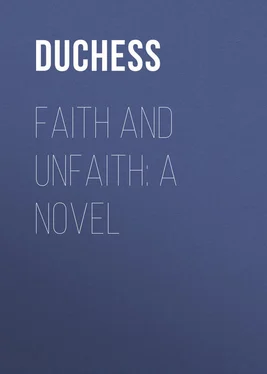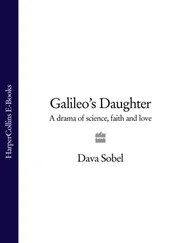Duchess - Faith and Unfaith - A Novel
Здесь есть возможность читать онлайн «Duchess - Faith and Unfaith - A Novel» — ознакомительный отрывок электронной книги совершенно бесплатно, а после прочтения отрывка купить полную версию. В некоторых случаях можно слушать аудио, скачать через торрент в формате fb2 и присутствует краткое содержание. Жанр: foreign_antique, foreign_prose, foreign_sf, на английском языке. Описание произведения, (предисловие) а так же отзывы посетителей доступны на портале библиотеки ЛибКат.
- Название:Faith and Unfaith: A Novel
- Автор:
- Жанр:
- Год:неизвестен
- ISBN:нет данных
- Рейтинг книги:3 / 5. Голосов: 1
-
Избранное:Добавить в избранное
- Отзывы:
-
Ваша оценка:
- 60
- 1
- 2
- 3
- 4
- 5
Faith and Unfaith: A Novel: краткое содержание, описание и аннотация
Предлагаем к чтению аннотацию, описание, краткое содержание или предисловие (зависит от того, что написал сам автор книги «Faith and Unfaith: A Novel»). Если вы не нашли необходимую информацию о книге — напишите в комментариях, мы постараемся отыскать её.
Faith and Unfaith: A Novel — читать онлайн ознакомительный отрывок
Ниже представлен текст книги, разбитый по страницам. Система сохранения места последней прочитанной страницы, позволяет с удобством читать онлайн бесплатно книгу «Faith and Unfaith: A Novel», без необходимости каждый раз заново искать на чём Вы остановились. Поставьте закладку, и сможете в любой момент перейти на страницу, на которой закончили чтение.
Интервал:
Закладка:
"Good-by," says Horace.
"Good-by," returns she. But it is to Clarissa, not to him, she addresses the word of farewell.
When the mill has been left some distance behind them, and Ruth's slight figure, clad in its white gown, has ceased to be a fleck of coloring in the landscape, Clarissa says, thoughtfully, —
"What a pretty girl that is, and how refined! Quite a little lady in manner; so calm, and so collected, – cold, almost. I know many girls, irreproachably born, not to be compared with her, in my opinion. You agree with me?"
"Birth is not always to be depended upon nowadays."
"She is so quiet, too, and so retiring. She would not even shake hands with you, when we met her, though you wanted her to. Did you remark that?"
"Sometimes I am dull about trifles, such as that."
"Yes. By the by, she did not seem surprised at seeing you here to-day, although she thought you safe in town, as we all did, – you deceitful boy."
"Did she not?"
"No. But then, of course, it was a matter of indifference to her."
"Of course."
They have reached the entrance to the vicarage by this time, and are pausing to say farewell for a few hours.
"I shall come up to Gowran to-morrow morning first thing, and speak to your father: is that what you will wish me to do?" asks Horace, her hand in his.
"Yes. But, Horace," looking at him earnestly, "I think I should like to tell it all to papa myself first, this evening."
"Very well, dearest. Do whatever makes you happiest," returns he, secretly pleased that the ice will be broken for him before his prepares for his mauvais quart-d'heure in the library. "And if he should refuse his consent, Clarissa, what then? You know you might make so much a better marriage."
"Might I?" – tenderly. "I don't think so; and papa would not make me unhappy."
CHAPTER IX
"A generous friendship no cold medium knows." – Pope.
Mrs. Redmond is sitting on a centre ottoman, darning stockings. This is her favorite pastime, and never fails her. When she isn't darning stockings, she is always scolding the cook, and as her voice, when raised, is not mellifluous, her family, in a body, regard the work-basket with reverential affection, and present it to her notice when there comes the crash of broken china from the lower regions, or when the cold meat has been unfairly dealt with.
She is of the lean cadaverous order of womankind, and is bony to the last degree. Her nose is aquiline, and, as a rule, pale blue. As this last color might also describe her eyes, there is a depressing want of contrast about her face. Her lips are thin and querulous, and her hair – well, she hasn't any hair, but her wig is flaxen.
As Clarissa enters, she hastily draws the stocking from her hand, and rises to greet her. A faint blush mantles in her cheek, making one at once understand that in by-gone days she had probably been considered pretty.
"So unexpected, my dear Clarissa," she says, with as pleased a smile as the poor thing ever conjures up, and a little weakness at the knees, meant for a courtesy. "So very glad to see you," – as, indeed, she is.
In her earlier days she had been called a belle, – by her own people, – and had been expected, accordingly, to draw a prize in the marriage-market. But Penelope Proude had failed them, and, by so doing, had brought down eternal condemnation on her head. In her second season she had fallen foolishly but honestly in love with a well-born but impecunious curate, and had married him in spite of threats and withering sneers. With one consent her family cast her off and consigned her to her fate, declaring themselves incapable of dealing with a woman who could wilfully marry a man possessed of nothing. They always put a capital N to this word, and perhaps they were right, as at that time all Charlie Redmond could call his own was seven younger brothers and a tenor voice of the very purest.
As years rolled on, though Mrs. Redmond never, perhaps, regretted her marriage, she nevertheless secretly acknowledged to herself a hankering after the old life, a longing for the grandeur and riches that accrued to it (the Proudes for generations had been born and bred and had thriven in the soft goods line), and hugged the demoralizing thought to her bosom that a little more trade and a little less blue blood would have made her husband a degree more perfect.
It pleased her when the county families invited the youthful Cissy to their balls; and it warmed her heart and caused her to forget the daily shifts and worries of life when the duchess sent her fruit and game, accompanied by kind little notes. It above all things reconciled her to her lot, when the heiress of Gowran Grange pulled up her pretty ponies at her door, and running in, made much of her and her children, and listened attentively to her grievances, as only a sympathetic nature can.
To-day, Clarissa's visit, being early, and therefore unconventional, and for that reason the more friendly, sweetens all her surroundings. Miss Peyton might have put in an appearance thrice in the day later on, yet her visits would not have been viewed with such favor as is this matutinal call.
"Cissy is out: she has gone to the village," says Mrs. Redmond, scarcely thinking Clarissa has come all the way from Gowran to spend an hour alone with her.
"I am sorry: but it is you I most particularly wanted to see. What a delicious day it is! I walked all the way from Gowran, and the sun was rather too much for me; but how cool it always is here! This room never seems stuffy or over-heated, as other rooms do."
"It is a wretched place, quite wretched," says Mrs. Redmond, with a depreciating glance directed at a distant sofa that might indeed be termed patriarchal.
"What are you doing?" asks Clarissa, promptly, feeling she cannot with any dignity defend the sofa. "Darning? Why can't I help you? – I am sure I could darn. Oh, what a quantity of socks! Are they all broken?" looking with awe upon the overflowing basket that lies close to Mrs. Redmond's feet.
"Every one of them," replies that matron, with unction. "I can't think how they do it, but I assure you they never come out of the wash without innumerable tears." Whether she is alluding, in her graceful fashion, to her children or their socks, seems at present doubtful. "I sometimes fancy they must take their boots off and dance on the sharp pebbles to bring them to such a pass; but they say they don't. Yet how to account for this?" She holds up one bony hand, decorated with a faded sock, in a somewhat triumphant fashion, and lets three emaciated fingers start to life through the toe of it.
"Do let me help you," says Clarissa, with entreaty, and, stooping to the basket, she rummages there until she produces a needle, a thimble, and some thread. "I dare say I shall get on splendidly, if you will just give me a hint now and then and tell me when I am stitching them up too tightly."
This hardly sounds promising, but Mrs. Redmond heeds her not.
"My dear, pray do not trouble yourself with such uninteresting work," she says, hastily. "It really makes me unhappy to see you so employed; and that sock of all others, – it is Bobby's, and I'm sure there must be something wrong with his heels. If you insist on helping me, do try another."
"No, I shall stitch up Bobby, or die in the attempt," says Miss Peyton, valiantly. "It is quite nice work, I should think, and so easy. I dare say after a time I should love it."
"Should you?" says Mrs. Redmond. "Well, perhaps; but for myself, I assure you, though no one will believe it, I abhor the occupation. There are moments when it almost overcomes me, – the perpetual in and out of the needle, you will understand, – it seems so endless. Dear, dear, there was a time when I was never obliged to do such menial services, when I had numerous dependants to wait on me to do my bidding But then" – with a deep sigh, that sounds like a blast from Boreas – "I married the vicar."
Читать дальшеИнтервал:
Закладка:
Похожие книги на «Faith and Unfaith: A Novel»
Представляем Вашему вниманию похожие книги на «Faith and Unfaith: A Novel» списком для выбора. Мы отобрали схожую по названию и смыслу литературу в надежде предоставить читателям больше вариантов отыскать новые, интересные, ещё непрочитанные произведения.
Обсуждение, отзывы о книге «Faith and Unfaith: A Novel» и просто собственные мнения читателей. Оставьте ваши комментарии, напишите, что Вы думаете о произведении, его смысле или главных героях. Укажите что конкретно понравилось, а что нет, и почему Вы так считаете.






![Дональд Уэстлейк - Enough [A Travesty (novel) and Ordo (novelette)]](/books/416846/donald-uestlejk-enough-a-travesty-novel-and-or-thumb.webp)





